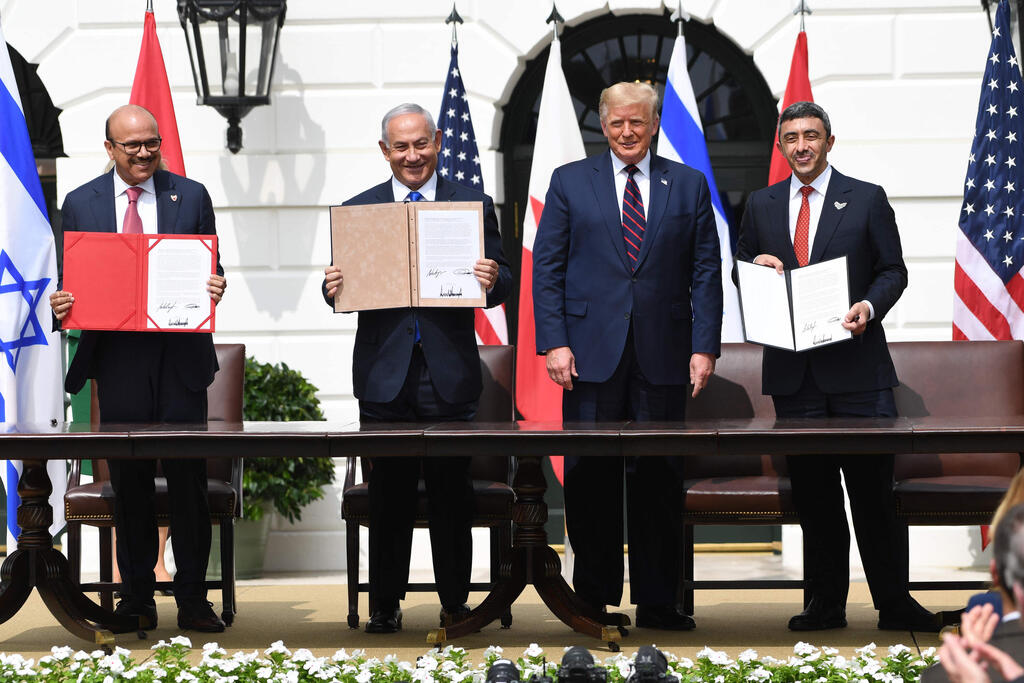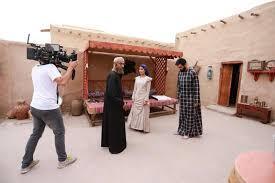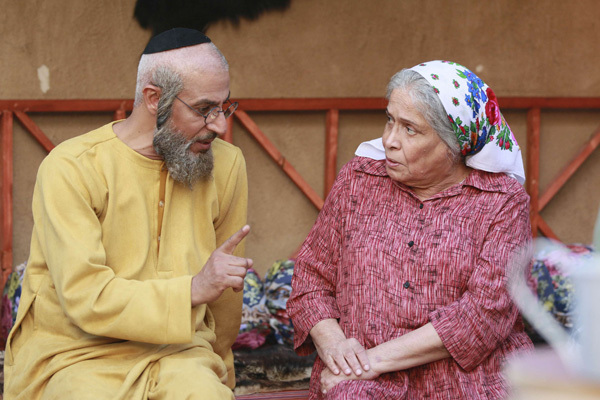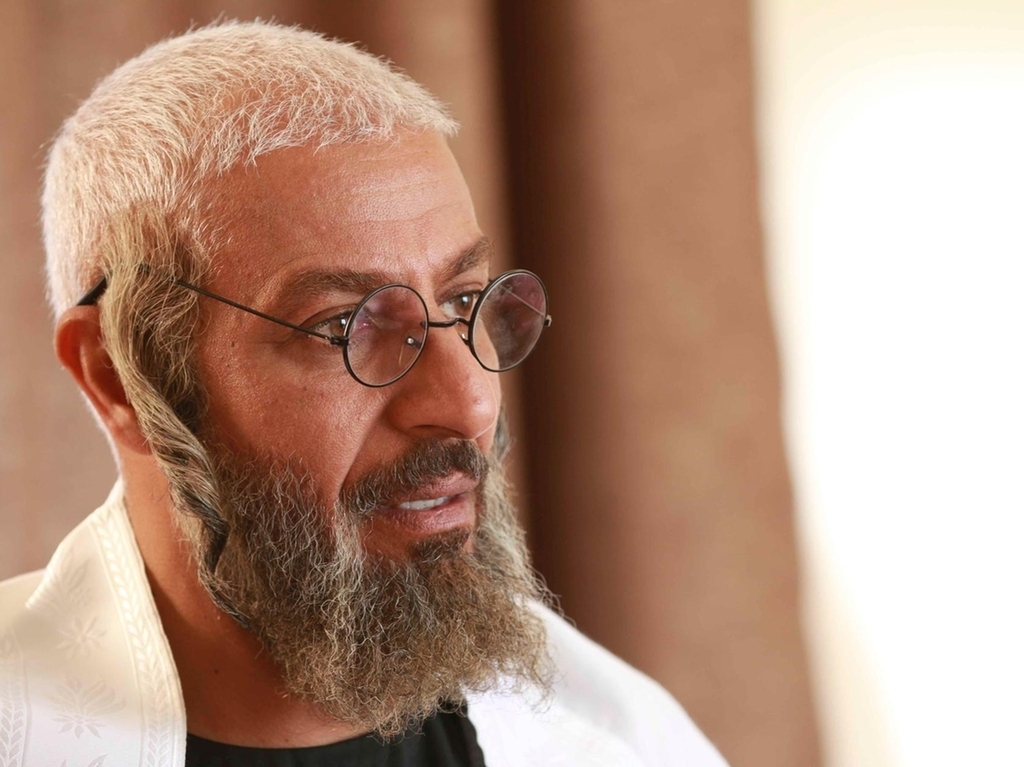Getting your Trinity Audio player ready...
An award-winning Saudi television drama series may have helped shift public perception of the historic normalization agreements that were reached between Israel and Gulf countries in August, one of the show’s co-creators believes.
Bahraini brothers Ali Shams and Mohammad Shams are the screenwriters who, along with their creative team, won the America Abroad Media award this year for their historic dramatic series Um Haroun (Mother of Aaron), which drew a massive audience base and aired on Saudi Arabia’s state-sponsored MBC.
The show first began airing during Ramadan earlier this year in Arabic-speaking countries and explores the relationships between Muslim/Christian Arab and Jewish communities.
“All the Arab people in the Gulf and especially Egypt – some 141 million people saw Um Haroun,” says Ali Shams, one of the series co-creators. “Some accepted it and some didn’t.”
Shams believes that the timing of the show’s release was particularly significant since it was broadcast only months before the signing of the Abraham Accords, which saw ties normalize between Israel, the United Arab Emirates and Bahrain.
4 View gallery


L-R: Bahrain FM Abdullatif al-Zayani, PM Benjamin Netanyahu, U.S. President Donald Trump, and Emirati FM Abdullah bin Zayed Al-Nahyan at the signing of the Abraham Accords at the White House
(Photo: AFP)
“I saw a lot of Jews and Israelis coming to Bahrain prior to Um Haroun’s release,” Shams says.
“This big drama is not the same as a plan between countries but it affected it for the people and how they received the news of normalization. Before Um Haroun and not knowing Jews, [the public] would have been shocked.”
One of the things Shams was hoping to showcase in the show, he said, was how different the Gulf was in relation to people’s religions back in the 1940s. The drama is based on a true story.
“The Gulf in the ‘40s was very different than what is today; no one asked you [about] your religion,” Shams says. “This is history. A lot of my friends in Bahrain where I live are Jewish.”
Shams is already onto his next series called Margaret, which is also based on a true story about a powerful woman from the UK who lived in the Gulf for 50 years.
The woman in question was related to Queen Elizabeth, according to the screenwriter, and the show is due to be released in April 2021 during Ramadan.
Abdulmohsen Al-Nemer, the Saudi actor who plays the role of Rabbi Daoud in Um Haroun, believes that the series came out at a “very sensitive time” because of the normalization agreements between Israel and Gulf countries.
“It wasn’t planned,” he says. “We are artists looking for human interest stories. The series was made up of 30 episodes and people started speaking about it from the first episode.”
One of the goals of the series, Al-Nemer says, was to show Jews, Christians and Muslims living together in peace and put a spotlight on a lesser-known piece of the region’s history.
When asked if he could envision Israelis acting alongside an Arab cast from varying countries if and when normalization takes place with Saudi Arabia, the actor was not certain the time is right.
“As an artist, you have to be in the same distance as everyone,” [editor’s note: meaning all equal] Al-Nemer says. “These days, anything can happen.”
Shams and Al-Nemer were speaking on the sidelines of the America Abroad Media’s (AAM) annual awards gala, which this year was held virtually due to the COVID-19 pandemic.
AAM is a nonprofit based in Washington, D.C., that honors creative leaders in film and television from around the globe. This year the organization presented a special award to Um Haroun’s creative team.
Dr. Aaron Lobel, founder and president of AAM, believes that the show exemplifies Saudi Arabia’s shifting attitudes towards normalizing ties with Israel.
“[The series] is evidence that a [Saudi]-owned channel, and the largest pan-Arab channel in the region, is willing to tackle stories involving Jewish characters,” Lobel said. “Moreover MBC aired the series during Ramadan, the most important month for television in the Arab world.”
The opening of the gala itself presented another milestone in warming Israel-Gulf ties, as Israeli singer Dudu Tassa and Emirati singer Mohammed al Shehhi released a new song they recorded together in Dubai. Tassa had traveled to the UAE in late November to record the song.
Unfortunately, due to the pandemic, such in-person artistic collaborations are likely to be few and far between in the near future.
“Hopefully that will change by summer 2021,” Lobel says. “In the meantime, however, we are organizing creative workshops – bringing Hollywood and Middle East writers and directors together – via Zoom. While not ideal, it still allows for genuine creative interaction.”
In February, AAM will be releasing a six-part podcast and public radio series in joint collaboration with the Louisville, Kentucky-based Muhammad Ali Center, a nonprofit museum dedicated to the famed boxer.
The series, which will air across the United States and Arab world, will focus on Ali’s winding spiritual path.
“Ali is a hero across the Arab and Muslim World and in the United States, and yet his journey – from Baptist Christian youth to the Nation of Islam, and ultimately to a more Sufi-influenced Islam (and a Jewish son-in-law) – has not been adequately explored in the many documentaries and films about him,” Lobel says.
“Our series will be hosted by Academy Award-winning actor Lou Gossett Jr.,” he concluded.




